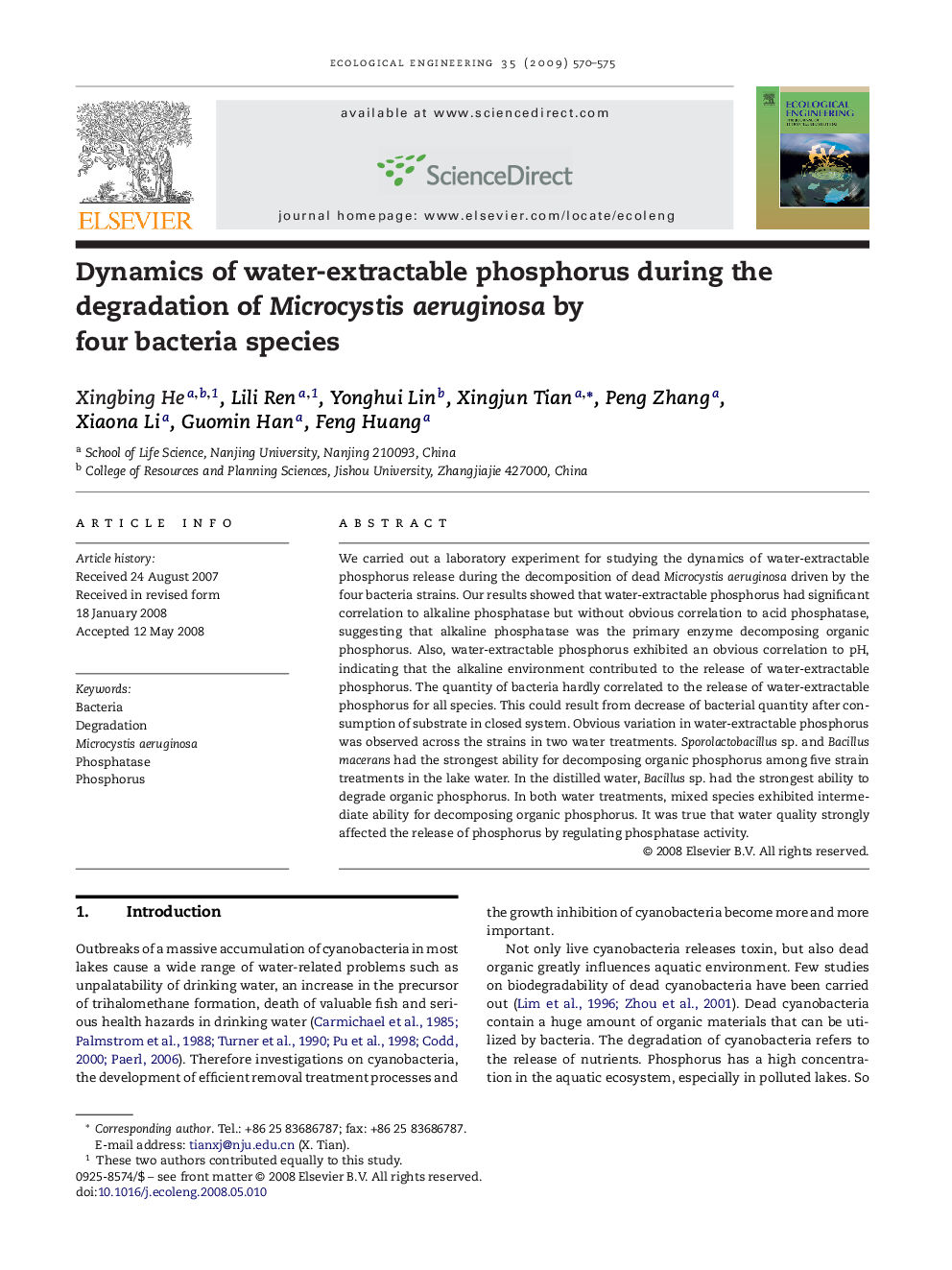| Article ID | Journal | Published Year | Pages | File Type |
|---|---|---|---|---|
| 4390989 | Ecological Engineering | 2009 | 6 Pages |
We carried out a laboratory experiment for studying the dynamics of water-extractable phosphorus release during the decomposition of dead Microcystis aeruginosa driven by the four bacteria strains. Our results showed that water-extractable phosphorus had significant correlation to alkaline phosphatase but without obvious correlation to acid phosphatase, suggesting that alkaline phosphatase was the primary enzyme decomposing organic phosphorus. Also, water-extractable phosphorus exhibited an obvious correlation to pH, indicating that the alkaline environment contributed to the release of water-extractable phosphorus. The quantity of bacteria hardly correlated to the release of water-extractable phosphorus for all species. This could result from decrease of bacterial quantity after consumption of substrate in closed system. Obvious variation in water-extractable phosphorus was observed across the strains in two water treatments. Sporolactobacillus sp. and Bacillus macerans had the strongest ability for decomposing organic phosphorus among five strain treatments in the lake water. In the distilled water, Bacillus sp. had the strongest ability to degrade organic phosphorus. In both water treatments, mixed species exhibited intermediate ability for decomposing organic phosphorus. It was true that water quality strongly affected the release of phosphorus by regulating phosphatase activity.
